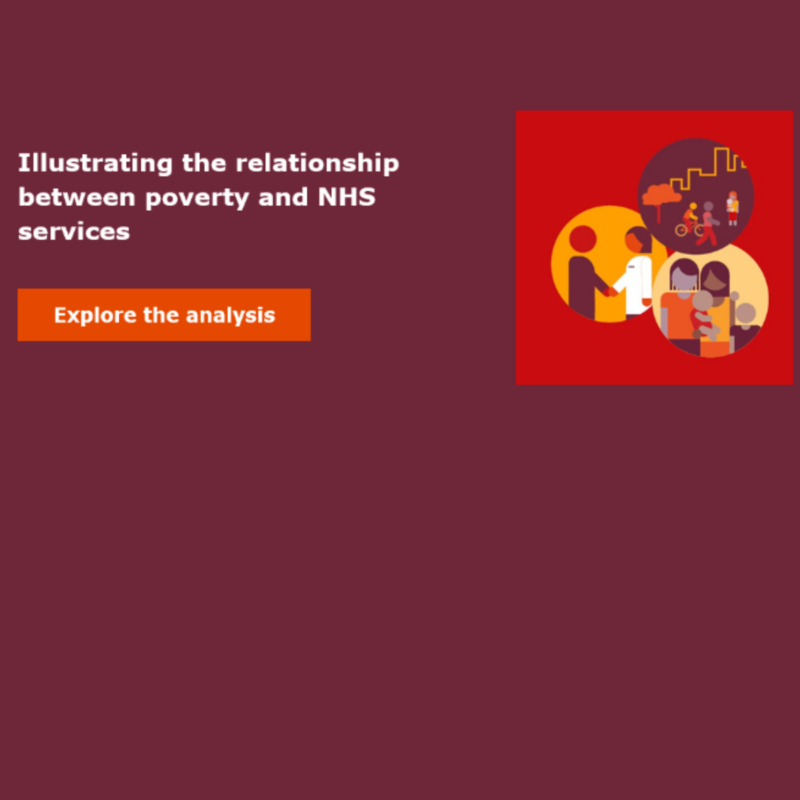
Currently it is estimated that more than one in five people in the UK are living in poverty. Living in poverty has a profound impact on people’s health and how they use NHS services. From greater prevalence of a wide range of diseases and difficulties in accessing health care, to later treatment and worse health outcomes, poverty affects every stage of the patient journey.
As well as taking a significant toll on individuals, poverty also leads to additional costs for the NHS. In 2016, the Joseph Rowntree Foundation (JRF) estimated the cost of poverty on health care (ie, additional public spending due to greater health care need and use) at £29 billion (£34 billion in current prices).
Since that report, the situation has got worse: the number of people living in poverty has increased since 2015/16, and the proportion of those people living in deep poverty has risen.
This long read looks at the link between poverty and each of the following: